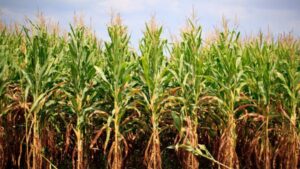Put simply, the United States is falling behind in research related to its biggest industry, agriculture. To a large extent the kind of innovation and research that made the United States a world agricultural leader has been floundering for years due to a lack of funding, according to the National Corn Growers Association (NCGA). But NCGA fears the real pain is just beginning to surface.
Work related to sustainable production practices, genetic improvement and new uses is where the rubber meets the road. Tangible results from these kinds of investments can take up to 15 years to fully realize. Enter the National Agricultural Genotyping Center, a small but high tech facility with the single mission of translating scientific discoveries into solutions for farmers. The facility is the brainchild of the National Corn Growers Association in partnership with Los Alamos National Laboratory and the Donald Danforth Plant Science Center.
“The name ‘National Agricultural Genotyping Center,’ or NAGC, might sound intimidating but at its core, the facility and its mission is very simple,” shares Larry Hoffmann, chairman of the NCGA’s Corn Productivity & Quality Action Team. “They are here to identify high priority problems related to production agriculture, food safety, functional foods, bioenergy and national security and then use the latest technology to find an expedited solution.”
The “expedited solution” part of the equation comes from the NAGC’s ability to develop, run and review genetic assays and get U.S. farmers back in the game. Places like China, India and Brazil are making large scale investments in production agriculture research, but with the emergence of NAGC, the United States is able to make smarter investments to provide real answers to problems ranging from honeybee colony collapse to plant and animal diseases.
“NAGC is already proving its worth because of its ability to quickly assess and better understand these problems,” says Richard Vierling, NCGA research director. “When it’s done right, agricultural genotyping can alleviate the inefficiencies, redundancies, bottlenecks and gaps that impede research and commercial development.”
New research and technology is critical to ensuring farmers have the tools to continue to improve soil health, water quality and sustainable farming practices.













